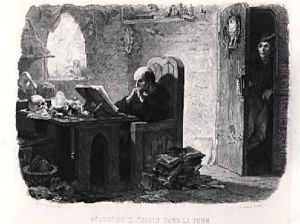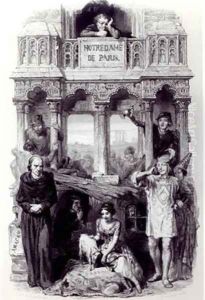Lemud, Francois Joseph Aime de Paintings
François Joseph Aimé de Lemud was a multifaceted French artist whose work spanned various disciplines, including painting, engraving, and illustration. Born in 1787 in Metz, France, Lemud grew up in an era where the arts were undergoing significant transformations, influenced by both the political upheavals of the French Revolution and the subsequent Napoleonic Wars, and the romantic movements sweeping through Europe. His early life was marked by these tumultuous times, which shaped his artistic vision and the thematic concerns of his work.
Lemud’s career began in earnest in the early 19th century, a period when artists were exploring new ways of expressing emotion, nature, and national identity. He was deeply influenced by the Romantic movement, which was characterized by an emphasis on emotion and individualism as well as glorification of the past and nature. Lemud's work often reflected these romantic ideals, focusing on historical subjects, landscapes, and scenes that evoked a sense of nostalgia and emotional depth.
Despite his alignment with Romanticism, Lemud was also influenced by the neoclassical tradition, evident in his disciplined approach to form and composition. This dual influence allowed him to develop a unique style that was both emotive and precise, making his work resonate with audiences of his time. He was particularly renowned for his engravings and illustrations, which were characterized by their detailed and delicate lines, capturing the intricacies of his subjects with remarkable clarity.
Throughout his career, Lemud received various commissions for illustrations in books and periodicals, contributing significantly to the visual culture of his time. His engravings and illustrations not only served as accompaniments to texts but also as standalone works of art that were highly sought after by collectors. Lemud's ability to convey complex narratives and emotions through his engravings made him a pivotal figure in the development of French illustration during the 19th century.
François Joseph Aimé de Lemud passed away in 1875, leaving behind a legacy that had a lasting impact on the French art scene. His work continues to be studied and appreciated for its contribution to the Romantic movement and its influence on the evolution of illustration and engraving in France. Lemud's artistic vision, characterized by a blend of emotional depth and technical precision, remains a significant part of art history, demonstrating the enduring power of visual storytelling.

